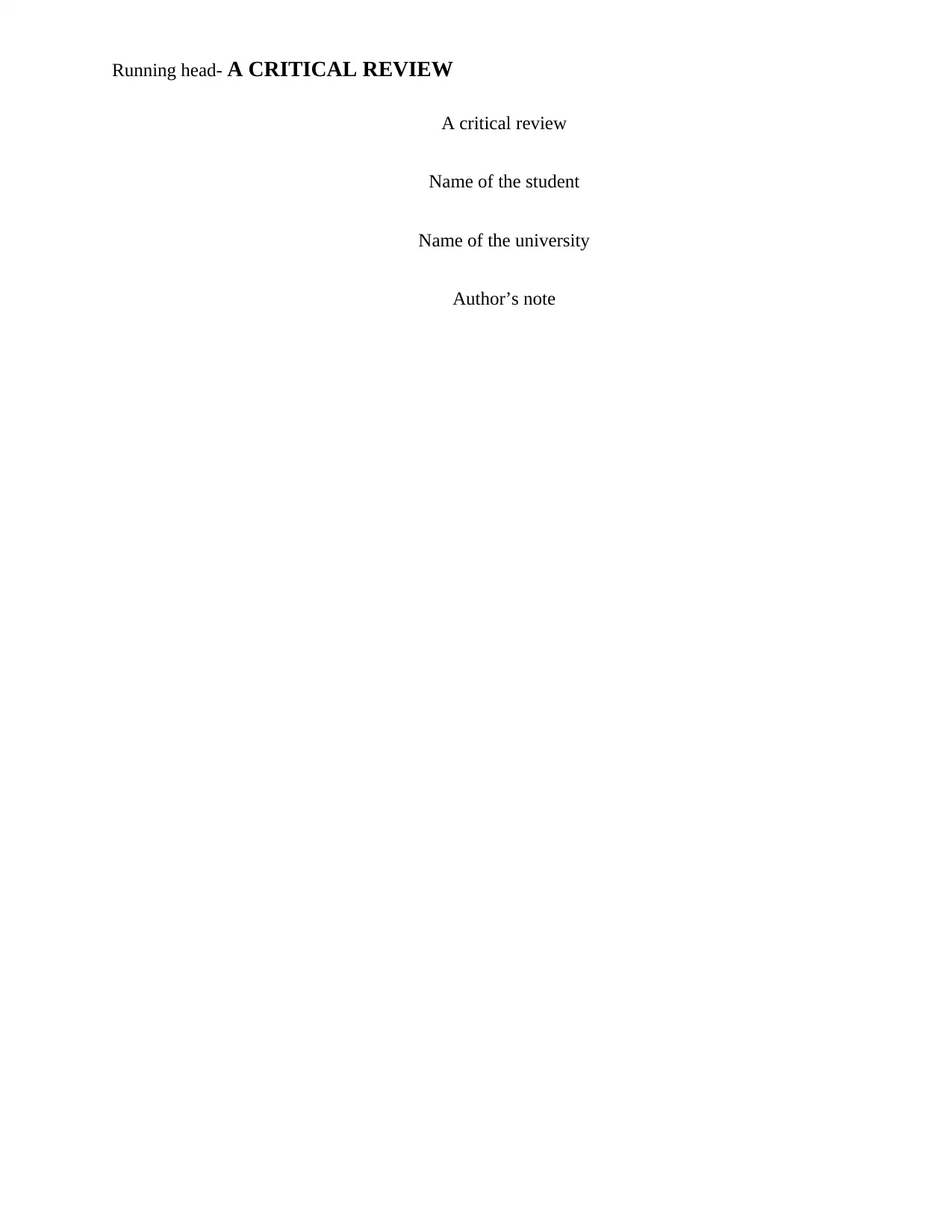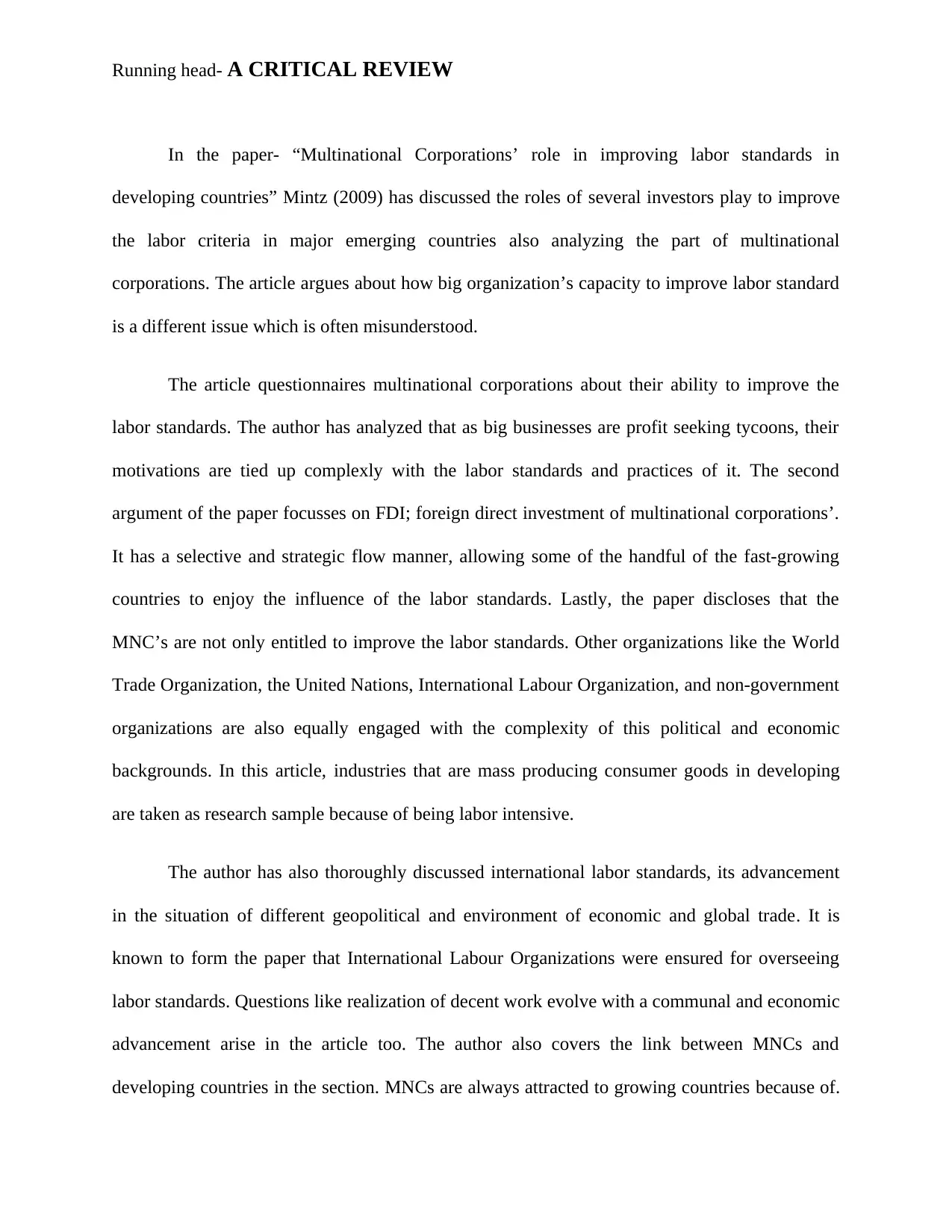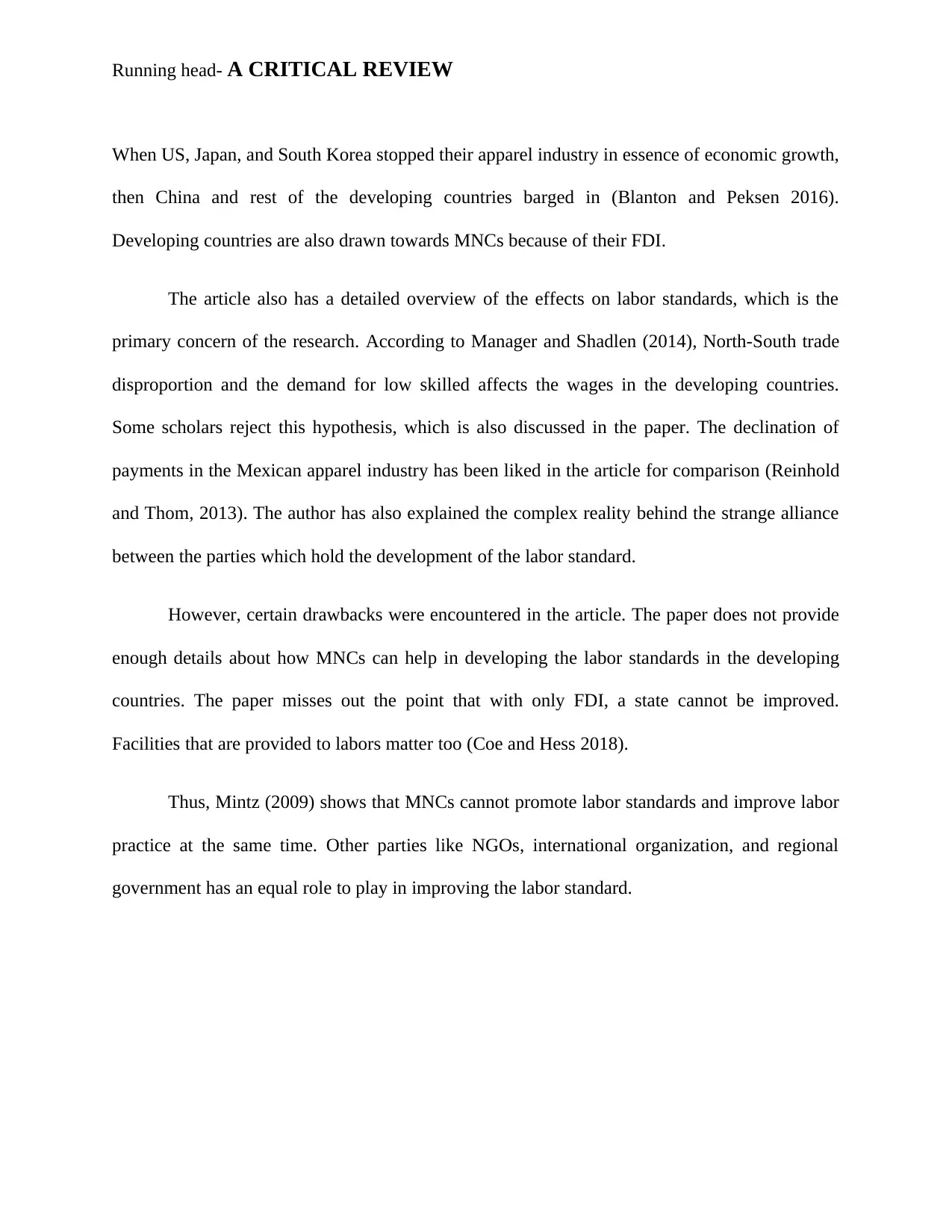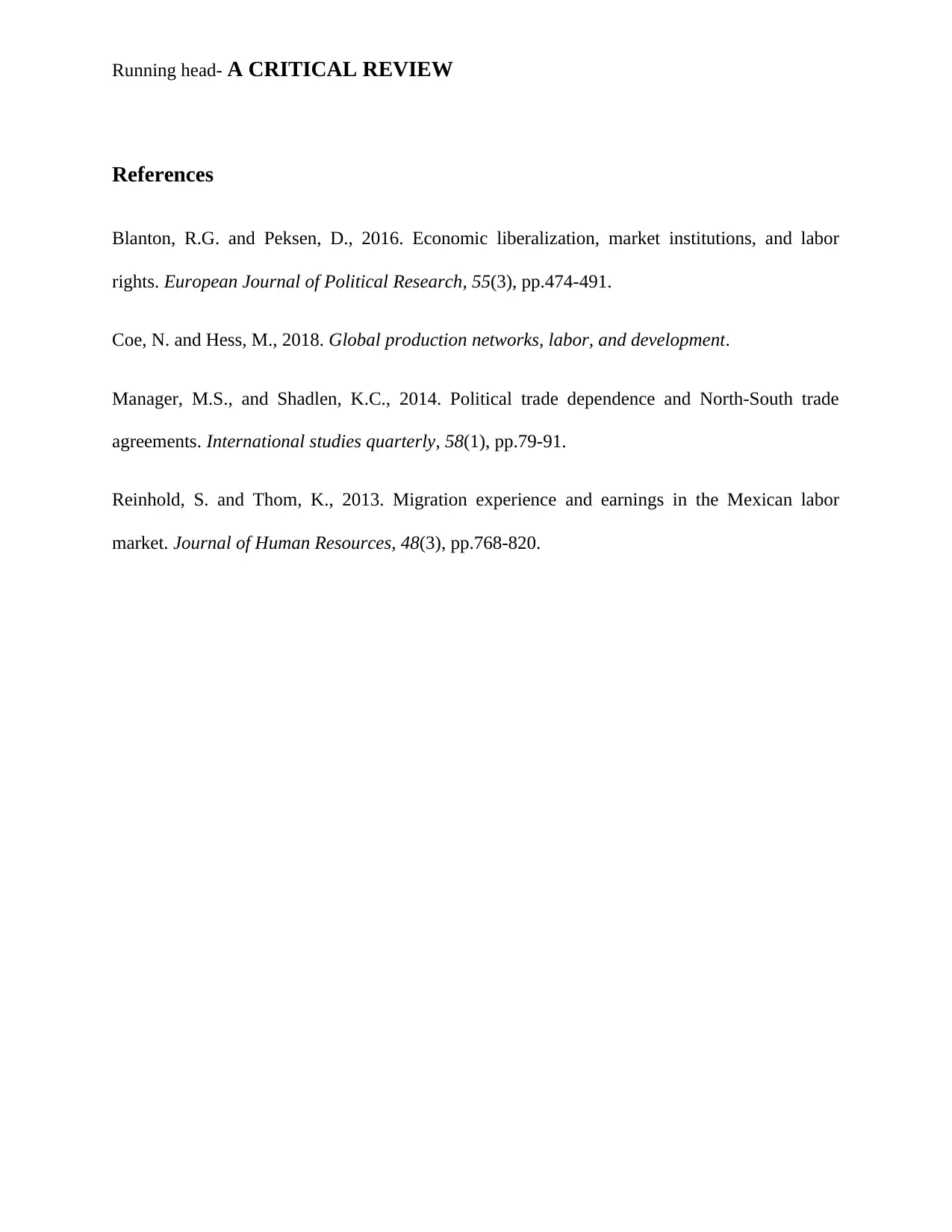Critical Review: MNCs, Labor Standards, and Developing Countries
VerifiedAdded on 2023/04/25
|4
|741
|231
Report
AI Summary
This report presents a critical review of the research paper "Multinational Corporations’ role in improving labor standards in developing countries" by Mintz (2009). The review analyzes the author's arguments regarding the capacity of large organizations to enhance labor standards, particularly within the context of developing nations. It examines the role of Foreign Direct Investment (FDI) and its impact on labor standards, as well as the limitations of MNCs in isolation, highlighting the importance of other organizations like the World Trade Organization, the United Nations, International Labour Organization, and non-government organizations. The review also explores the influence of geopolitical and economic factors on international labor standards, the effects of trade liberalization, and the complex relationships between various stakeholders involved in the development of labor standards. The review identifies the paper's strengths, such as its detailed overview of the effects on labor standards, and weaknesses, such as lack of details on how MNCs can help in developing the labor standards in the developing countries. The review concludes by emphasizing the multifaceted nature of improving labor standards and the need for collaboration among various entities to achieve meaningful progress.
1 out of 4











![[object Object]](/_next/static/media/star-bottom.7253800d.svg)